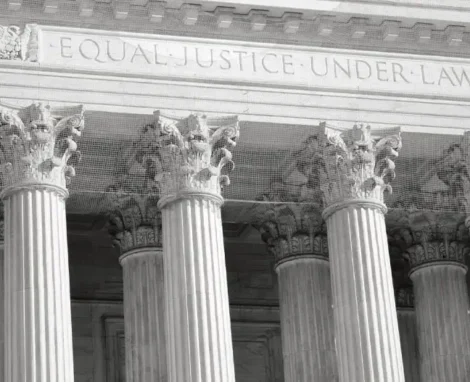Category Archives: SCOTUS
Justice Clarence Thomas: A Corrupt Ideologue Who Should be Investigated, Impeach
Clarence Thomas became an associate justice of the Supreme Court in October 1991. Former President George H.W. Bush appointed him to the Court to…
Right to Counsel Reaffirmed, Still in Crosshairs of Supreme Court
The American Bar Association list Gideon V. Wainwright (1963) as one of the U.S. Supreme Court’s “landmark“ decisions. Gideon held that States must provide…
The Billionaire Lifestyle of Justice Thomas
Billionaires buy justice, just as they buy everything else. They live by the business creed that everything and everyone has a price—even presidents, legislators,…
History Begs For Removal of Justice Thomas (Part 3)
Earl Warren, a Republican, became U.S. Supreme Court Chief Justice in October 1953 during President Dwight Eisenhower’s administration. John Roberts, a Republican, became U.S.…
U.S. Supreme Court for Sale to Highest Bidder (Part 2)
In a May 5, 2015 UCLA Law Review article, the late conservative Republican Utah senator, Orin G. Hatch, made this constitutional observation in an…
Confrontation Clause Faces Another Attack in Supreme Court
The Chief Justice John Roberts-led U.S. Supreme Court will have another opportunity to modify or overrule a longstanding precedent issued by the Court before…
Supreme Court Justice Thomas Should Resign (Part 1)
By an unusually narrow U.S. Senate confirmation vote of 52-48, Clarence Thomas became a U.S. Supreme Court justice on October 23, 1991. During his…
Political Division Undermines Independent Judiciary
Federalist Paper #78, written by Alexander Hamilton, James Madison, and John Jay, said the need for an “independent judiciary” was “designed to be an…
U.S. Supreme Court Limits Ability to Claim Ineffective Assistance in Post-Conviction Proceedings
The Sixth Amendment to the U.S. Constitution guarantees a criminal defendant the right to effective assistance of counsel at both the trial and appellate…
Ketanji Brown, a Justice for the People
The Preamble of the Texas Disciplinary Rules of Professional Conduct for a lawyer’s responsibility for their “client’s position under the rules of the adversary…
Take the first step toward protecting your freedom by contacting us now
John T. Floyd is Board Certified in Criminal Law By the Texas Board of Legal Specialization
Request A Confidential Consultation
Fields marked with an * are required
"*" indicates required fields

























